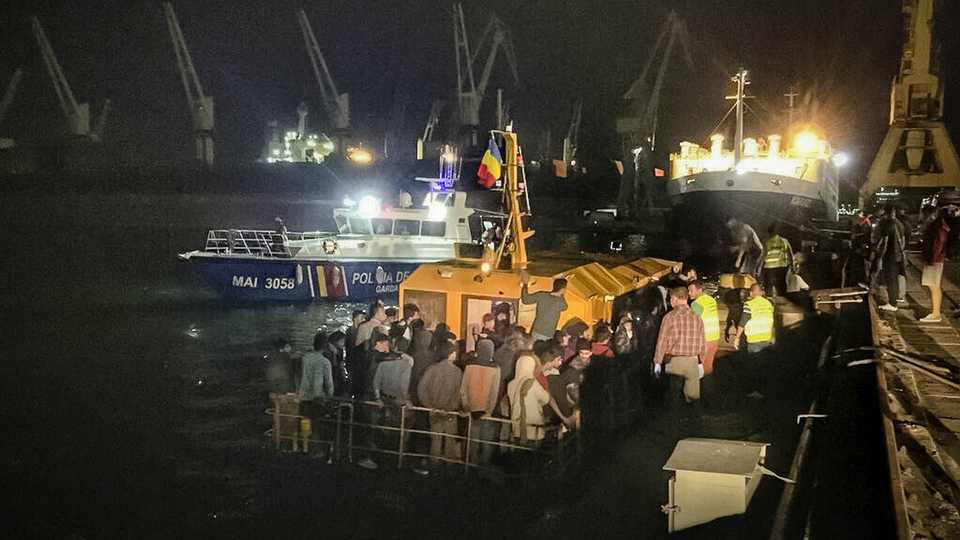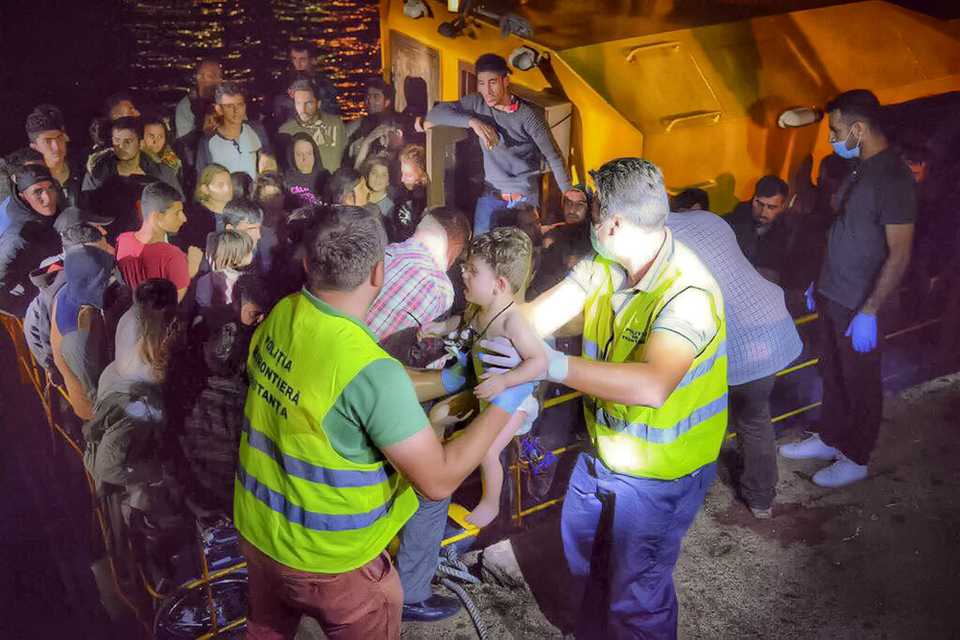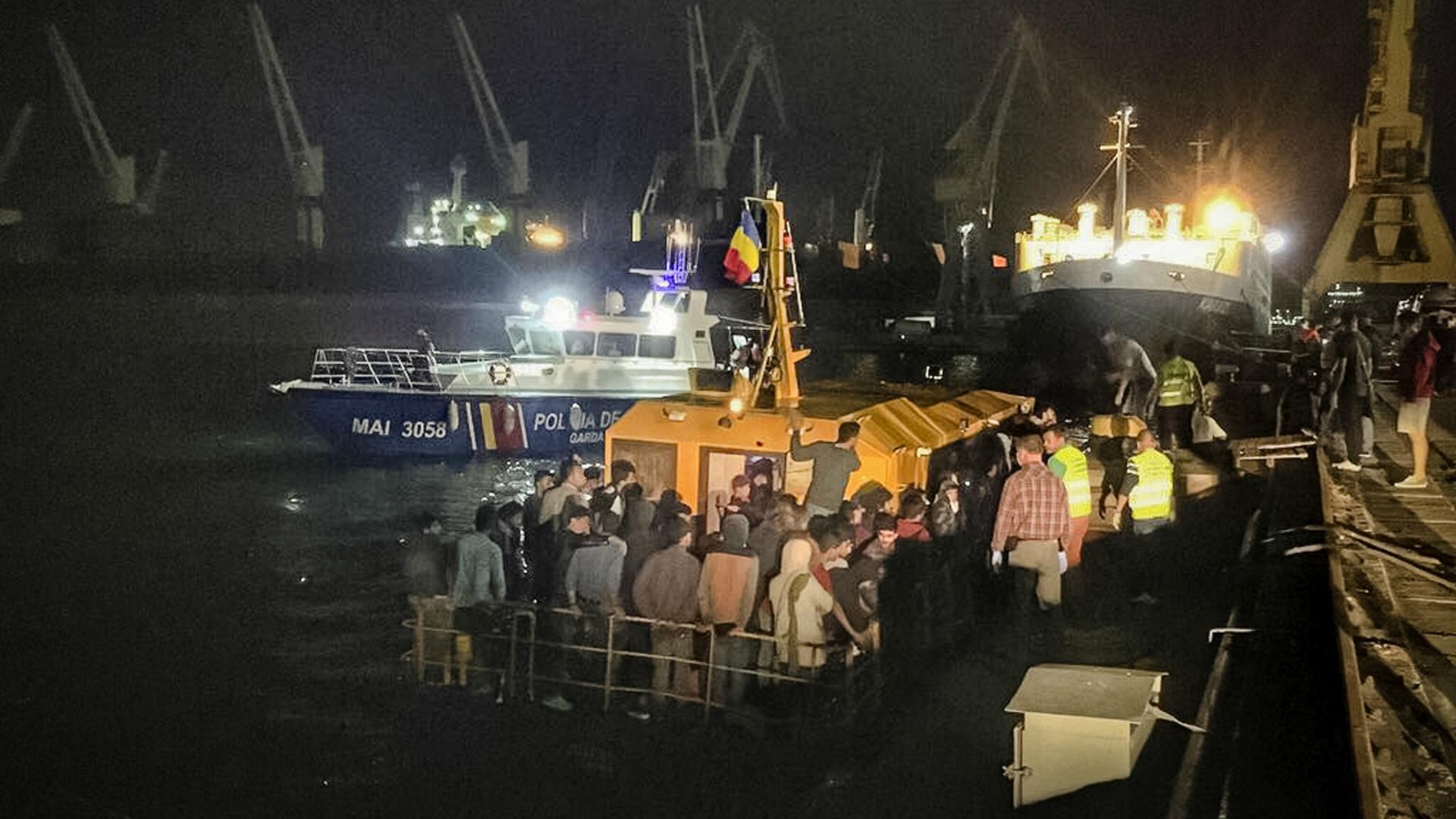
The death of 23 refugees when their boat sank off Turkey’s northwestern province of Kocaeli last week has brought the Black Sea into focus.
While the numbers of refugees entering the EU using the Black Sea pales into insignificance when compared with those making the crossing from Libya to Italy or even Greece, the sudden rise in the numbers attempting the dangerous crossing is significant.
In 2015, around a million people undertook risky sea journeys to cross the Mediterranean to Europe, mostly to Greece from Turkey over the Aegean Sea.
Thousands died in the perilous crossing. Responding to international pressure, Turkey tightened its sea borders and cracked down on migrant smuggling rings as part of a 2016 deal with the EU.
The numbers of migrants crossing the Aegean has now dwindled, ever since Turkey and the EU agreed a deal to send back refugees crossing into Greece from March 2016.
But increasing numbers, now rising to hundreds within a month, are trying to cross the Black Sea from Turkey to EU member Romania.
Not part of the deal
The Black Sea is not subject to the deal that Turkey signed with the EU.
Some 834 migrants were caught and 10 smugglers detained by Romania in seven Black Sea incidents between mid-August and early September, according to statistics published by the Anadolu news agency.
The Romanian Journal reported that about 500 refugees arrived by boat in the month ending 15 September.
While exact figures on refugees arriving from across the Black Sea were not immediately available from the Romanian Border Police, the number of illegal immigrants entering the country across its land borders had also increased.
In the first six months of 2017 some 2,474 refugees were intercepted – the vast majority of those were Iraqis, Syrians and Pakistanis.
In comparison, only 507 attempted to cross the country’s borders for the entire year of 2016.
Numbers up for new route
A press release issued by the Turkish Coast Guard command on September 9 also backs up the idea that the Black Sea route is fast becoming a new refugee route into the EU.
In two incidents on September 8 and 9 mentioned in the the press release, the Turkish authorities rescued 217 migrants on their way to Romania. All of them, apart from two Iraqis, were Syrian migrants.
One Turkish and two Ukrainian “organizers” were detained by the authorities.
A day later the Turkish Coast Guard issued another press release detailing how another fishing boat was intercepted. On board the vessel were 93 migrants – 91 Syrians and two Afghanistan nationals. Two Turkish traffickers were detained.

Add to that the 40 people rescued when the fishing boat sank off Kocaeli last week, and Turkish authorities have intercepted 373 migrants in September alone – including the aforementioned 23 who lost their lives.
The number of illegal migrants entering the EU across the Mediterranean Sea was reported to be 135,937. And according to reports, there are 2,665 who are reported to have drowned.
Inhospitable waters
The Black Sea has a reputation of nasty storms that dates back generations. The ferocity of the storms prompted the ancient Greeks to call the Black Sea: Axenos – “inhospitable.”
And of course there are other boats and vessels that were never intercepted, whose fate is not known.
But the Black Sea’s storms are not stopping the migrants – and according to local media seven human traffickers, including a Cypriot and a Bulgarian have appeared in court in the coastal city of Constanta.
The trend of illegal migrants entering the EU through the Black Sea has not gone unnoticed, even in Italy which so far this year has seen the arrival of 135,937 migrants.
La Stampa newspaper in Italy’s fourth-largest city of Turin reported on the issue of Romania and the Black Sea becoming the new corridor for refugees.
One of their reporters spoke to the Christian Radu, the worried mayor of southern Romanian port city of Mangalia.
“Nobody passes through Greece anymore. Bulgaria has walls and soldiers lined up at the border, as did Hungary along its borders with Serbia and Croatia. And so, the only passage left to reach northern Europe, is through us. And they are trying,” Radu was quoted as saying.










Discussion about this post